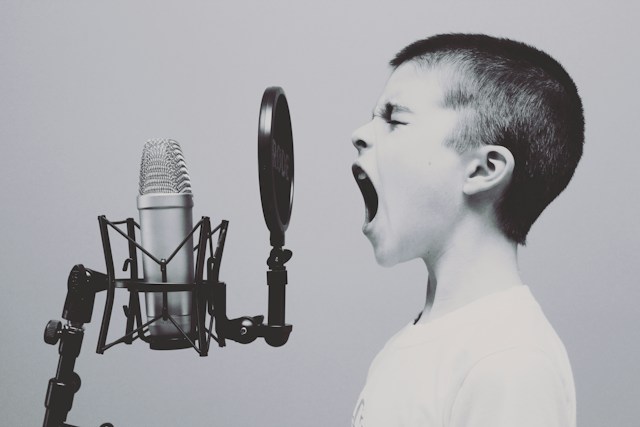In a world where beauty is often equated with flawless notes and chart-topping ranges, a different voice, softly imploring the listener’s heartstrings, might just have what it takes to redefine the concept of vocal beauty. From the operatic crescendos of Pavarotti to the raspy tenderness of Janis Joplin, voices across the spectrum have charmed and challenged the hearts and ears of listeners, reinforcing the subjectivity and rich diversity of beauty in voice.
Subjectivity of Beauty in Voice
Voice, as the medium of human expression, conveys a spectrum of emotions and experiences, from love to loss and faith to fury. This subjectivity in vocal appreciation is entrenched in personal perception—no two people may agree on whose voice is the most beautiful.
A soprano’s sonorous high notes may speak to the soul of a classical music aficionado, while the raw and earthy grit of a blues singer may resonate with someone chasing the truths of life’s trials and tribulations. It’s this subjectivity that adds layers to the tapestry of vocal beauty, making it as varied and unique as the individuals who perceive it.
Diversity in Voice Beauty
Cultural influences further enhance the palette of vocal beauty, dictating distinct preferences for tonal quality, enunciation, and vibrato. Where one culture may venerate the clear and round notes of a choir, another may find solace in the grounding bass rumbles of tribal harmonies. This extends to individual styles and vocal affectations, revered in some societies and reviled in others, emphasizing that the concept of beauty in voice is not only subjective but also remarkably fluid and inclusive.
Contemporary icons and industry standards often project a homogenized ideal of vocal beauty. Still, a closer look at music that’s endured the test of time reveals a melodic mosaic far beyond the typical mainstream hits. From the ethereal warbles of Yodeling to the rapid-fire of Rap, each genre brings its own standards and celebrates voices that would likely never make it through the filter of a ‘beauty’ centric casting call.
The Impact of Voice on Emotion and Connection
A voice’s beauty is intrinsically tied to emotion and connection. It’s not just about how high or low it can go, but about the depths it plumbs and the moments it uplifts. Emotion is a universal language, transcending barriers created by dialect or pitch. A voice that quivers with the weight of its message can find resonance with strangers in distant lands, igniting fires of passion or stirring waves of empathy from a crowd.
In a song, it’s not unusual for listeners to choose a favorite line not for its technical perfection, but for the way it’s been delivered—the subtle inflections or the powerful outpouring of feeling, the longing whispers or the exuberant bellowing. These artistic characteristics, often misunderstood as objective measures of beauty, are inherently subjective emotional triggers that magnify the beauty for the individual listener.
Challenging Stereotypes and Expanding Definitions
Society harbors a habit of stereotyping and compartmentalizing, finding pleasure in labelling a voice as “good” or “bad” based on arbitrary standards. The world of opera might traditionally seek out operatic voices, just as pop music trends lean toward consistent high notes and catchy melodies. This breeds a monoculture of sound, overshadowing the wealth of voices that don’t fit in but are no less beautiful or talented.
Acknowledging and appreciating voices that fall outside of these norms—voices that are unconventional, raw, and unrestrained—is the first step in challenging these beauty stereotypes. It signals an understanding that vocal beauty is not confined to the walls of a particular genre or style but is an expansive, ever-evolving phenomenon that finds its allure in the diverse choir of human expression.
What We Think – Who has the most beautiful voice?
While there may never be a definitive answer to this question, it’s clear that the subjectivity and diversity of vocal beauty are what make it such a captivating and ever-evolving concept. So instead of searching for one particular voice to rule them all, let us celebrate the multitude of voices that bring beauty into our lives in their own unique ways.
Let us embrace the challenge of expanding our definitions and breaking free from narrow stereotypes, opening ourselves up to the rich tapestry of vocal beauty that exists in the world around us. After all, beauty truly lies in the ear of the beholder.
But if we had to pick our most beautiful voice of all time, it would have to be out of these 5 artists: Adele, Freddie Mercury, Whitney Houston, Cher and Tina Turner. All of these artists have received critical acclaim for their undeniable vocal abilities and diverse styles that continue to captivate listeners across generations.
So, while we may never all agree on who has the most beautiful voice, one thing is for sure – there is no shortage of breathtaking voices to choose from.
Conclusion
The quest to pinpoint who has the most beautiful voice is futile, for the answer is woven into the very fabric of individual perception and communal resonance. It is my assertion that the beauty of voice lies not in its fidelity to any objective standard, but in its power to touch the hearts and minds of those not so concerned with the perfect pitch as they are with the genuine connection.
As we journey through a world that seems bent on standardizing beauty, it is our duty as enthusiasts, creators, and appreciators of music to embrace the multifaceted beauty in all voices. Let us tune our ears to the subtle, the unusual, and the raw, finding in each the uniqueness that adds color and depth to our own personal choir of favorites. For in the symphony of human life, no voice can lay claim to being the most beautiful—each resonates with its own kind of magic, waiting to be heard, and loved.


